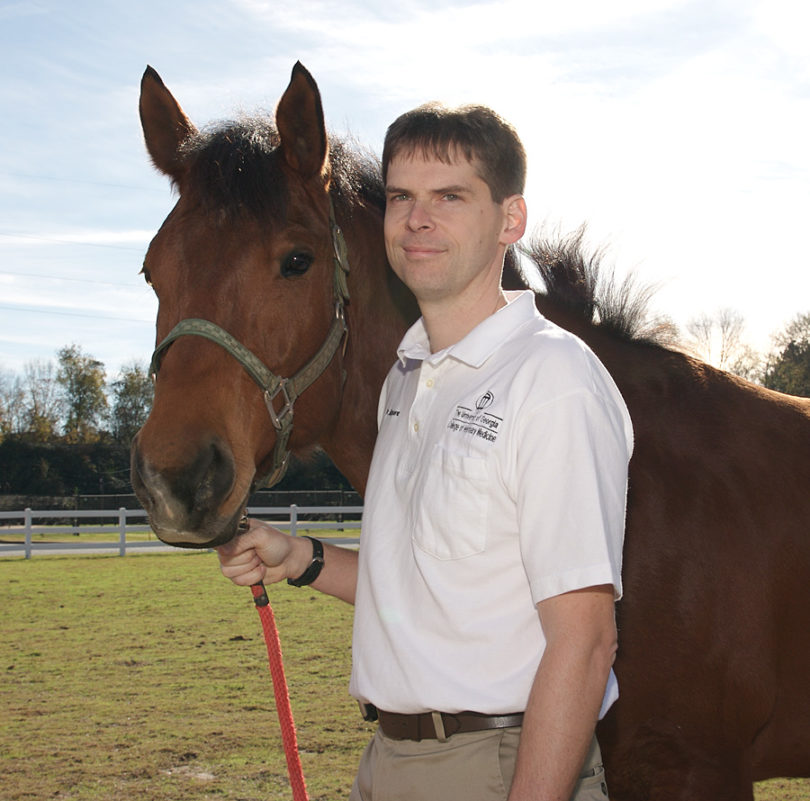Dr. Steeve Giguère’s interest in equine medicine arose from growing up around horses.
However, his interest in research really took off after seeing some unusual cases of partial paralysis in foals. As an intern, Giguère encountered several foals infected with Rhodococcus equi that presented with abscesses compressing their spinal cords.
The disease typically manifests as pneumonia with abscesses in the lungs, but in these cases, the compression paralyzed the foals’ hind limbs. Giguère became fascinated with the pathogen and, as a result, published a series of case studies; he also made it the topic of his doctoral research.
Giguère, the first holder of the Marguerite Thomas Hodgson Chair of Equine Studies in the College of Veterinary Medicine, has since become an award-winning researcher and teacher, most recently receiving the Intervet/Schering-Plough Animal Health Applied Equine Research Award at the World Equine Veterinary Association Congress held in Guarujá-SP, Brazil in September. He came to UGA from the University of Florida, where he was a professor of large animal medicine and head of the neonatal unit.
“The main reason I was interested in working at UGA was that many people work in similar areas of research—inflammation, immunity and infectious diseases—so there will be more opportunities for team work and collaboration,” he said.
His education has taken him from the University of Montreal, where he completed his doctorate in veterinary medicine and an internship in equine medicine and surgery, to the University of Pennsylvania’s New Bolton Center for a residency, then back to Canada to complete a Ph.D. at the Ontario Veterinary College at the University of Guelph.
With more than 70 refereed papers to his credit as well as numerous book chapters and a book on antimicrobial therapies, Giguère has researched everything from vaccines to diagnosis and treatment of infections such as R. equi, a treatable pathogen that seldom affects adult horses.
He recently has focused on how to treat foals infected with antimicrobial-resistant strains of the disease. He also is trying to better understand why foals are susceptible to the pathogen while adults are resistant.
He has received numerous teaching awards from his days as a resident at New Bolton to the highest veterinary teaching honor bestowed each year: the Carl Norden-Pfizer Distinguished Teacher Award, which he received from the veterinary college at the University of Florida in 2006.
“Dr. Giguère is a talented researcher, teacher and clinician—a genuine triple threat,” said Dr. Andrew Parks, head of the veterinary medicine college’s department of large animal medicine.
For Giguère, teaching was not his original intent, but rather a manifestation of self-discovery.
“I always intended to work in an equine practice after veterinary school,” he said. “However, during my internship I really enjoyed teaching students, and I decided to pursue advanced training to remain in an academic environment.
“There is nothing more gratifying than seeing the evolution of veterinary students from their first day on clinics, when they have much theoretical knowledge that they do not know how to apply, to their last rotation, when they have evolved into astute young clinicians,” he added.








